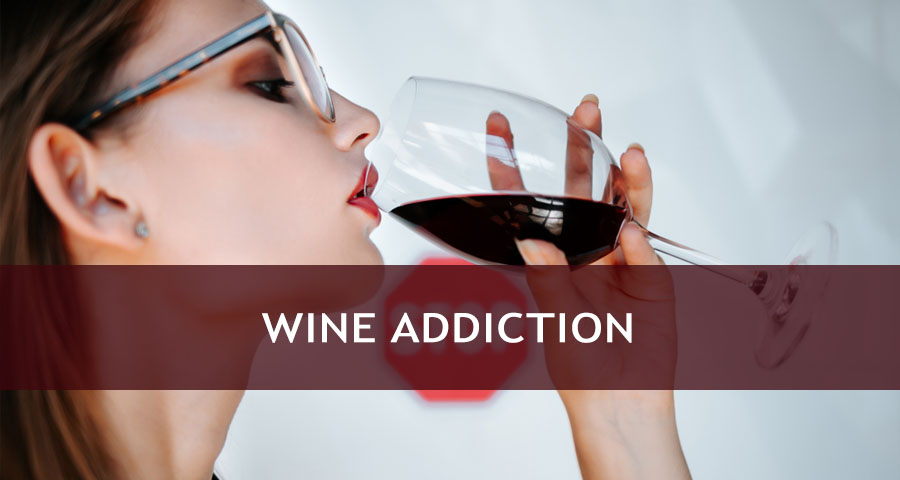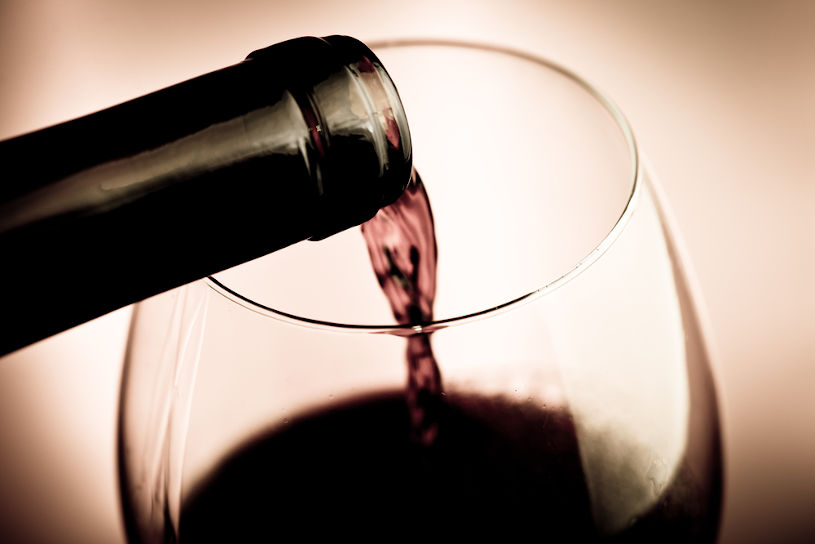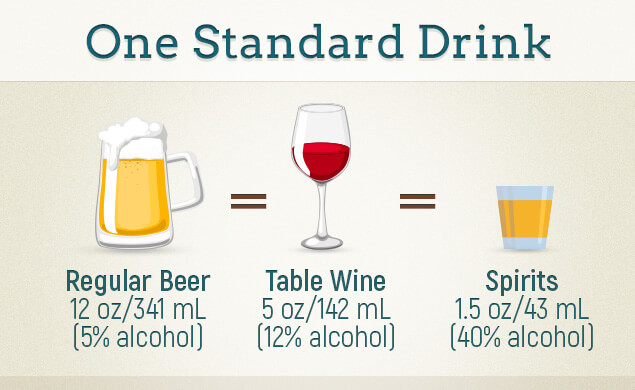
Wine is often thought of as a classy drink, something to be tasted, sipped and enjoyed over dinner. But like other alcohols, too much can lead to a wine addiction and as many potential health consequences as any other drink.
Table Of Contents:
Not everyone who drinks alcohol will develop an addiction, but drinking too much even without addiction can become problematic. There are some positive health benefits of wine, which is made solely from grapes and the natural yeast found on them, but there are also risks. One of these is an addiction, and that can lead to many more issues.
Negative Effects of Excessive Wine Consumption
Whether it’s white or red wine addiction, or not yet an addiction, drinking too much can have some serious impacts on health:
- Increased blood cholesterol and toxins in because of impaired liver function
- Premature aging
- Increased risk of infertility
- Sexual dysfunction
- Difficulty sleeping and poor quality sleep
- Weight gain
It can be a little confusing to find out how wine intake can impair health. Moderate consumption may have health benefits and these often directly contradict the negative health effects of drinking.
For instance, in moderation, red wine can actually support weight loss and maintenance because of the effect of antioxidants on fat. But, when it is consumed excessively, it can add pounds. Alcohol has a lot of calories without providing much nutrition and tends to stimulate the appetite. Someone who is drinking is likely to eat more and gets excess calories from the alcohol.

Signs and Symptoms of Addiction to Wine
It’s important to recognize wine addiction symptoms because a casual and healthy drinking habit can easily become problematic. Alcoholism and alcohol abuse of any kind can cause serious complications and health problems and must be addressed and treated.
Some Signs that Drinking Wine Has Gotten Out of Control Include:
- Trying to stop drinking or to drink less, but failing again and again
- Often setting a drinking limit and going past it
- Other people are noticing and commenting on drinking habit
- Feelings of guilt or shame after drinking
- Drinking wine alone more and more frequently
- Forgetting what happened after a drinking binge
- Hiding drinking or lying about a number of drinks actually consumed
- Feeling a need for wine when stressed, sad, or experiencing other negative emotions
These are all signs of a potential alcohol use disorder, which may be mild, moderate, or severe. A severe disorder is also considered an addiction, or alcoholism. There are specific alcohol or wine addiction symptoms that point to alcoholism:
- Tolerance. Needing more and more alcohol to get the same level of intoxication.
- Withdrawal. Uncomfortable physical and mood symptoms when not drinking.
- Drinking in spite of issues. Continuing to drink even when it causes significant problems.
- Time and energy. Spending an outsized amount of time and energy on drinking wine, even giving up other activities to drink.
- Loss of control. Being completely unable to control drinking amount or frequency.
Overcoming or Preventing Wine Addiction
A harmless wine habit can all too easily become an alcohol use disorder or an addiction. There are steps that can be taken to avoid this outcome and while still enjoying a moderate amount of alcohol:
- Keep an accurate record of wine consumption for a specific period of time.
- Understand standard drink sizes—12 ounces of beer, 5 ounces of wine, or 1.5 ounces of liquor—to avoid over-drinking.
- Pace drinking, limiting to one glass of wine or other standard drink per hour.
- Set specific goals for the week for drinking.
- Never drink on an empty stomach.
- Avoid drinking wine alone, and only enjoy it on social occasions.
- Look for alternative activities to do in the time that was previously spent drinking, such as exercise or having coffee with friends.
- Have alternative, healthy coping strategies for stress or other emotions that usually trigger drinking.
- Never binge drink, which is four or more drinks at once for women and five for men, even as a reward for abstaining for several days.
For many people, drinking a glass or two of wine becomes a habit at the end of a long work day, a way to unwind and destress. This habit can quickly get out of control, with individuals believing they need that drink to feel better. Developing healthier strategies for relaxing is a great way to avoid developing this bad habit. A walk, a cup of tea, a talk with a friend, a good book, or a hot bath, are all better ways to cope with stress and to relax.
If drinking wine does get out of hand and becomes difficult to control, it may be best to keep it out of the house entirely. And, of course, if this and other self-help strategies don’t work, and wine addiction symptoms persist, it is essential to seek out professional help. Fighting any kind of addiction is nearly impossible to do alone, but mental health and addiction specialists can provide assistance.
Scientifically Proven Benefits of Wine Consumption
When consumed in moderation, wine can actually provide health benefits, especially red varieties. It is crucial though, to monitor intake and behaviors to be sure that casual, moderate drinking does not turn into a red wine addiction.

Moderation means having no more than one drink per day for women and no more than two drinks per day, for men. Women generally metabolize alcohol more slowly, which is why they are unable to drink as much. Health benefits of moderate wine consumption include:
- Promotion of sleep due to melatonin content
- Lowering the risk of certain types of cancer, including prostate cancer in men
- Rejuvenates skin cells
- Delaying the aging process
- Preventing hair loss because of the compound resveratrol
- Protecting against degenerative brain diseases
- Promoting weight loss or weight maintenance
- Strengthening gums and reducing the risk of gum inflammation
Wine alcoholism symptoms should be taken very seriously. While there are well-known benefits of moderate consumption, drinking too much can have severe negative consequences. It is important to be aware of the signs of problem drinking and to take steps to make positive changes before there are serious complications.
Page Sources
- Anil Batra, Christian A. Müller, Karl Mann, Andreas Heinz, Alcohol Dependence and Harmful Use of Alcohol, https://www.ncbi.nlm.nih.gov/pmc/articles/PMC4873678/
- Yftach Gepner, Yaakov Henkin, Dan Schwarzfuchs, Rachel Golan, ,Ronen Durst, Ilan Shelef, Ilana Harman-Boehm, Shosana Spitzen, Shula Witkow, Lena Novack, Michael Friger, Osnat Tangi-Rosental, Dana Sefarty, Nitzan Bril, Michal Rein, Noa Cohen, Yoash Chassidim, Benny Sarusi, Talia Wolak, Meir J. Stampfer, Assaf Rudich, Iris Shai, Differential Effect of Initiating Moderate Red Wine Consumption on 24-h Blood Pressure by Alcohol Dehydrogenase Genotypes: Randomized Trial in Type 2 Diabetes, https://www.ncbi.nlm.nih.gov/pmc/articles/PMC4886485/
- Montserrat Vadillo, Anna Ardévol, Juan Fernández-Larrea, Gerard Pujadas, Cinta Bladé, Maria Josepa Salvadó, Lluís Arola, Mayte Blay, Moderate red-wine consumption partially prevents body weight gain in rats fed a hyperlipidic diet, https://pubmed.ncbi.nlm.nih.gov/16169198/
- Harvard Health Publishing. Ask the doctor: Why does alcohol affect women differently? https://www.health.harvard.edu/womens-health/why-does-alcohol-affect-women-differently


 Reviewed by:
Reviewed by:  Written by:
Written by: 

 FindTreatment.gov
FindTreatment.gov